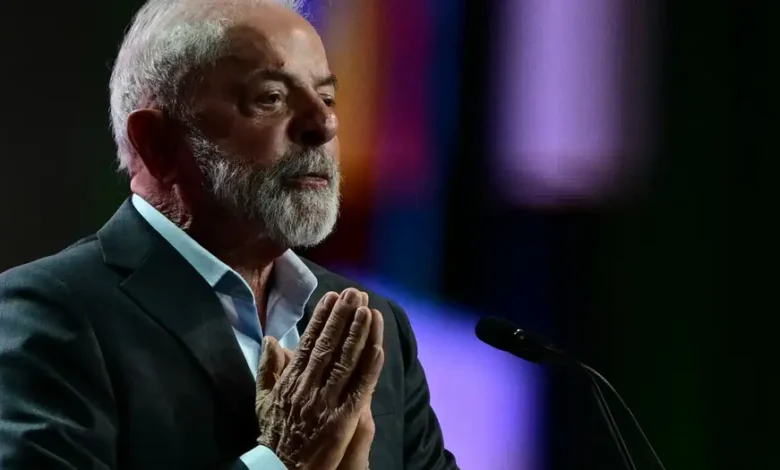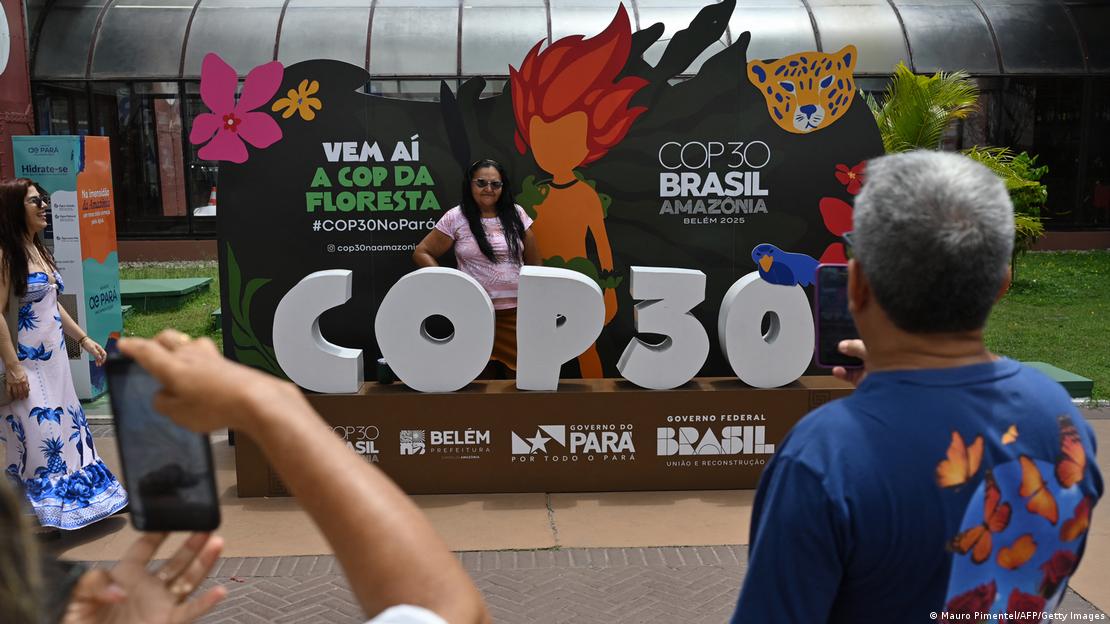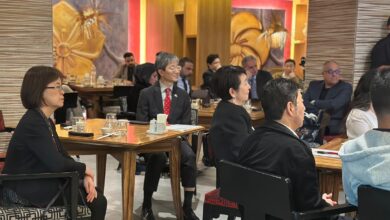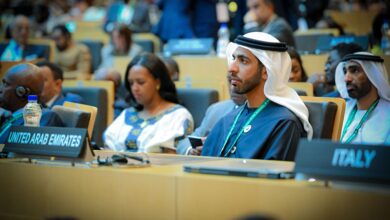COP30 opens in the Amazon with urgent calls for climate action
‘Climate change is no longer a threat of the future. It is a tragedy of the present,’ said the Brazilian President Lula, condemning those who reject climate science. He emphasized that the crisis is hitting hardest in developing nations and poorer communities already reeling from extreme weather.

Last year’s UN climate summit in Baku, Azerbaijan, began with President Ilham Aliyev hailing oil — the fossil fuel driving global warming — as a “gift of God.”
This year’s COP30 conference, held on the edge of the Amazon rainforest in Belém, Brazil, struck a markedly different tone. In a defiant opening speech, Brazilian President Luiz Inácio Lula da Silva declared it was time to confront climate change deniers head-on.
“Climate change is no longer a threat of the future. It is a tragedy of the present,” Lula said, condemning those who reject climate science. He emphasized that the crisis is hitting hardest in developing nations and poorer communities already reeling from extreme weather.
“We need a fair transition,” he added, warning that the deepening climate emergency is widening inequality between “those who can live with dignity and those who must die.”

More than 190 national delegations have gathered in Belém for two weeks of negotiations aimed at curbing record-high emissions and rising global temperatures. Yet the talks unfold as climate change struggles to remain a political priority amid mounting economic and security concerns.
Right Direction, Wrong Speed
UN Climate Chief Simon Stiell acknowledged that progress has been made since the 2015 Paris Agreement, which aims to limit global temperature rise to well below 2°C — and ideally 1.5°C — above pre-industrial levels.
He noted that while countries have succeeded in bending the global emissions curve downward, momentum remains far too slow. “I am not sugarcoating it,” Stiell said. “We must move much, much faster on reducing emissions and strengthening resilience.”
Before the Paris Agreement, the world was heading toward roughly 3.5°C of warming by 2100. Current national climate action plans — or Nationally Determined Contributions (NDCs) — could limit that to around 2.5°C, assuming they are fully implemented. However, many nations have failed to update their pledges as required ahead of COP30.
A new UN analysis projects global greenhouse gas emissions will decline by only 12% by 2035 compared with 2019 levels — a modest improvement over the 10% forecast last month. Despite new commitments from China and the EU, the figure remains far below the 60% reduction scientists say is needed to stay on track for 1.5°C.
“We’re moving in the right direction,” Lula said, “but at the wrong speed.”
The UN now warns that staying below 1.5°C may be impossible without a temporary overshoot — a dire prospect for low-lying island nations like Tuvalu.
The ‘COP of Action’
Brazil has framed COP30 as a conference of “implementation” — focused on transforming past pledges into concrete results. Stiell outlined the priorities: a managed transition away from fossil fuels, a tripling of renewable energy capacity, and a doubling of energy efficiency. He also urged nations to agree on clear adaptation indicators and stronger financial mechanisms.
Last year’s COP29 ended with a commitment to channel at least $300 billion annually from developed to developing countries by 2035. But experts say that amount is insufficient. A central task in Belém will be expanding that target to around $1.3 trillion (€1.12 trillion) per year — which Lula argued is “much cheaper than waging war.”
Defending Science and Multilateralism
Amid geopolitical tensions and multiple global conflicts — and in the absence of the United States, the world’s second-largest emitter — Stiell called for unity.
“In this arena of COP30, your job is not to fight one another, but to fight this climate crisis — together,” he said.
Conference President André Corrêa do Lago, Brazil’s chief climate negotiator, invoked mutirão — a Portuguese word of Indigenous origin meaning “collective effort” — urging participants to embrace cooperation. Both he and Lula stressed the need to defend science and multilateralism in an “era of fake news and misinformation.”
Recent reports show COP-related disinformation surging by 267% in recent months, heightening the urgency for transparent communication. “Either we decide to change by choice, together, or change will be imposed by tragedy,” do Lago warned.
The Cost of Inaction
Stiell cautioned that failing to increase ambition will have catastrophic economic and human costs. “No nation can afford this,” he said, citing climate disasters that have already erased double-digit percentages from national GDPs.
His remarks came as a super typhoon struck the Philippines, weeks after a deadly hurricane ravaged Jamaica and eastern Cuba. “When climate disasters destroy lives while we already have the solutions, this will never be forgiven,” he said.
The UN climate chief noted that renewable energy technologies are now cost-competitive worldwide: wind and solar are the cheapest power sources in roughly 90% of the globe, and investment in renewables — which this year surpassed coal as the largest source of electricity — has doubled that of fossil fuels.
“The economics of this transition,” Stiell concluded, “are as indisputable as the costs of inaction.”
Meanwhile, the administration of President Donald Trump has downplayed the importance of COP30 and did not send a delegation to this year’s UN climate summit in Belém, Brazil. However, local and regional leaders from across the United States who together account for two-thirds of the US population and nearly three-quarters of its economic output are pressing ahead with their own commitments and want the world to know they are not giving up on climate action, reports dw.com
The following is the account of half a century of climate summits and how the world has responded to the warming planet; COP to COP, tracing the world’s climate journey from 1975 to today:
1988–1991: Climate Enters Global Politics
- 1988 – The Intergovernmental Panel on Climate Change (IPCC) was established by the UN to assess scientific evidence and impacts of climate change.
- 1990 – The First IPCC Assessment Report concluded that climate change was real and largely caused by human activity.
- 1992 – The Earth Summit in Rio de Janeiro led to the creation of the UN Framework Convention on Climate Change (UNFCCC) — the legal foundation for all future COP meetings.
1995–2004: The Birth of the COP Process
- 1995 (COP1, Berlin) – The first official COP meeting under the UNFCCC; nations agreed that stronger commitments were needed.
- 1997 (COP3, Kyoto) – Adoption of the Kyoto Protocol, the first legally binding treaty requiring developed nations to cut greenhouse gas emissions.
- 2001 (COP7, Marrakech) – Rules for implementing Kyoto were finalized. The U.S., under President George W. Bush, later withdrew from Kyoto.
- 2004 – Russia’s ratification brought the Kyoto Protocol into force in 2005.
2005–2014: Implementation and Expansion
- 2005 (COP11, Montreal) – Focus shifted toward post-Kyoto frameworks and longer-term cooperation.
- 2007 (COP13, Bali) – The Bali Action Plan launched negotiations toward a new global agreement.
- 2009 (COP15, Copenhagen) – High-profile summit with global leaders; resulted in the Copenhagen Accord, recognizing the goal of limiting global warming to 2°C, but it was non-binding.
- 2011 (COP17, Durban) – Nations agreed to negotiate a universal, binding agreement by 2015.
2015–2020: The Paris Era
- 2015 (COP21, Paris) – The Paris Agreement was adopted by 196 parties. It set the goal of limiting global warming to well below 2°C (preferably 1.5°C) and required all countries to submit Nationally Determined Contributions (NDCs).
- 2017 – The U.S., under President Trump, announced its withdrawal from the Paris Agreement.
- 2018 (COP24, Katowice) – The Paris Rulebook was adopted, establishing guidelines for implementation.
- 2020 – Global emissions dropped temporarily due to COVID-19 lockdowns, but the Paris goals remained off-track.
2021–Present: The Decade of Urgency
- 2021 (COP26, Glasgow) – Countries agreed to “phase down” coal, increase climate finance, and strengthen 2030 targets. The U.S. rejoined the Paris Agreement under President Biden.
- 2022 (COP27, Sharm El-Sheikh) – Historic agreement to establish a Loss and Damage Fund to assist vulnerable countries hit by climate disasters.
- 2023 (COP28, Dubai) – The first Global Stocktake confirmed the world is not on track to meet the 1.5°C target, but new pledges were made to triple renewable energy and double energy efficiency by 2030.
- 2025 (COP30, Belém, Brazil) – Scheduled as the next major climate summit, hosted in the Amazon region — symbolizing the critical link between forests, biodiversity, and global climate health.
In summary since 1975, climate change has evolved from a scientific theory to a global governance challenge.
1970s–80s: Science and awareness.
- 1990s: Treaties and targets (Kyoto).
- 2000s: Implementation and expansion.
- 2010s: Global cooperation (Paris).
- 2020s: Action, accountability, and adaptation.












